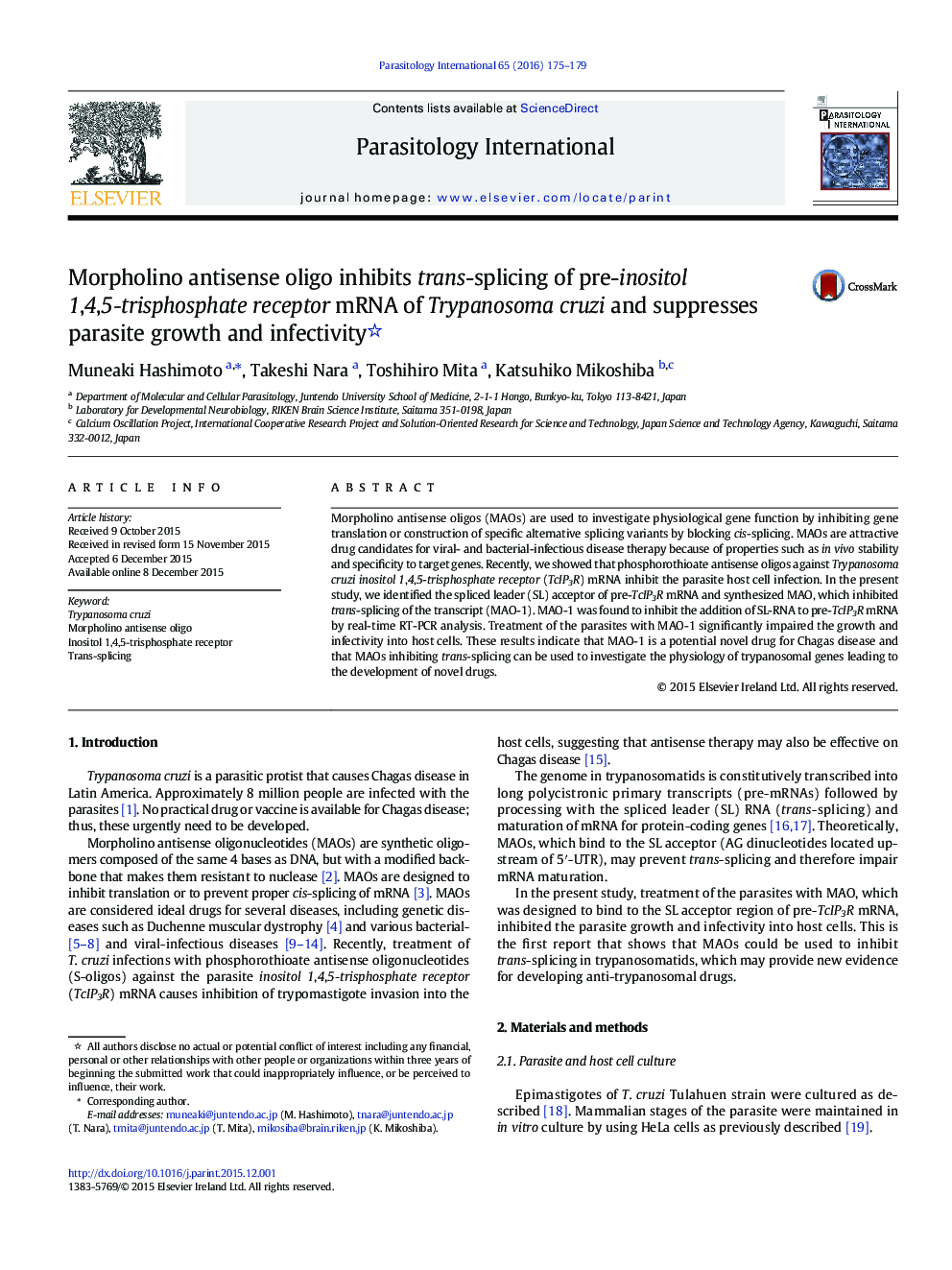| Article ID | Journal | Published Year | Pages | File Type |
|---|---|---|---|---|
| 6136529 | Parasitology International | 2016 | 5 Pages |
â¢We identified the SL acceptor of pre-TcIP3R mRNA.â¢We designed a morpholino antisense oligo to inhibit TcIP3R mRNA maturation.â¢Antisense oligo inhibits T. cruzi epimastigote growth and trypomastigote infectivity.â¢Morpholino antisense oligo is a potential novel drug.â¢Trans-splicing inhibition could be a good target drug for trypanosomiasis.
Morpholino antisense oligos (MAOs) are used to investigate physiological gene function by inhibiting gene translation or construction of specific alternative splicing variants by blocking cis-splicing. MAOs are attractive drug candidates for viral- and bacterial-infectious disease therapy because of properties such as in vivo stability and specificity to target genes. Recently, we showed that phosphorothioate antisense oligos against Trypanosoma cruzi inositol 1,4,5-trisphosphate receptor (TcIP3R) mRNA inhibit the parasite host cell infection. In the present study, we identified the spliced leader (SL) acceptor of pre-TcIP3R mRNA and synthesized MAO, which inhibited trans-splicing of the transcript (MAO-1). MAO-1 was found to inhibit the addition of SL-RNA to pre-TcIP3R mRNA by real-time RT-PCR analysis. Treatment of the parasites with MAO-1 significantly impaired the growth and infectivity into host cells. These results indicate that MAO-1 is a potential novel drug for Chagas disease and that MAOs inhibiting trans-splicing can be used to investigate the physiology of trypanosomal genes leading to the development of novel drugs.
Graphical abstractDownload full-size image
